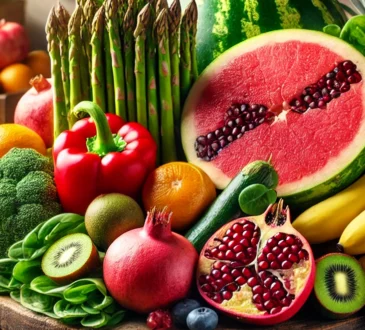
Watery Sperm Causes and Foods Tips:
Watery sperm can be a sign of low sperm concentration or poor semen quality. It can result from temporary factors such as dehydration, frequent ejaculation, or diet, but it might also indicate underlying issues like hormonal imbalances or infections. Improving your diet is one of the most effective ways to enhance sperm quality. Here’s what you should eat to thicken your sperm and boost its quality:
1. High-Protein Foods
- Why: Protein is essential for building sperm cells and maintaining overall sperm health.
- Foods to Include:
- Lean meats (chicken, turkey)
- Eggs
- Fish (salmon, tuna, sardines)
- Dairy products (milk, yogurt, cheese)
- Plant-based proteins (tofu, lentils, chickpeas)
2. Zinc-Rich Foods
- Why: Zinc is critical for testosterone production and sperm count. A deficiency can lead to watery semen.
- Foods to Include:
- Oysters (best natural source of zinc)
- Pumpkin seeds
- Meat (beef, lamb)
- Nuts (cashews, almonds)
- Chickpeas and lentils
3. Vitamin C-Rich Foods
- Why: Vitamin C reduces oxidative stress and prevents sperm DNA damage, improving sperm count and motility.
- Foods to Include:
- Oranges, kiwis, strawberries
- Bell peppers
- Pineapples
- Broccoli and Brussels sprouts
4. Foods Rich in Vitamin E
- Why: Vitamin E protects sperm cells from oxidative damage and enhances their motility and quality.
- Foods to Include:
- Almonds and sunflower seeds
- Spinach
- Avocados
- Vegetable oils (olive oil, sunflower oil)
5. Omega-3 Fatty Acids
- Why: Omega-3s improve sperm structure, thickness, and motility.
- Foods to Include:
- Fatty fish (salmon, mackerel, sardines)
- Flaxseeds and chia seeds
- Walnuts
- Fish oil supplements
6. Selenium-Rich Foods
- Why: Selenium improves sperm morphology (shape) and motility.
- Foods to Include:
- Brazil nuts (richest source of selenium)
- Tuna
- Eggs
- Mushrooms
7. Vitamin D-Rich Foods
- Why: Vitamin D is essential for testosterone production, which directly influences sperm production.
- Foods to Include:
- Egg yolks
- Fortified dairy products
- Fatty fish
- Mushrooms exposed to sunlight
8. Folic Acid and B12
- Why: These vitamins work together to increase sperm concentration and reduce DNA damage.
- Foods to Include:
- Leafy greens (spinach, kale)
- Fortified cereals
- Beef liver
- Eggs
9. Antioxidant-Rich Foods
- Why: Antioxidants help fight oxidative stress, which is a leading cause of poor sperm quality.
- Foods to Include:
- Berries (blueberries, raspberries)
- Dark chocolate (in moderation)
- Green tea
- Pomegranate
10. Hydrating Foods and Fluids
- Why: Dehydration can thin semen. Proper hydration is essential for producing thick, healthy semen.
- What to Drink:
- Water (2–3 liters per day)
- Coconut water
- Fresh juices (avoid sugary, processed ones)
- Herbal teas like ginger or green tea
11. Herbs and Natural Supplements
- Ashwagandha: Boosts testosterone and sperm count.
- Maca Root: Enhances sperm quality and libido.
- Fenugreek: Improves semen volume and motility.
- Shilajit: Supports overall sperm health and vitality.
Foods to Avoid
- Processed Foods: Reduce sperm quality due to trans fats and additives.
- Soy Products: Excessive consumption can lower testosterone levels.
- Excessive Alcohol: Negatively affects testosterone and sperm production.
- Caffeine: Moderate intake is okay, but excessive amounts can harm sperm health.
- Sugary Drinks: Lead to obesity and hormonal imbalance.
Lifestyle Changes
- Stay Active: Moderate exercise helps boost testosterone levels but avoid overexertion.
- Sleep Well: 7–8 hours of quality sleep supports hormone regulation.
- Reduce Heat Exposure: Avoid saunas, hot tubs, or tight underwear to protect sperm health.
- Quit Smoking: Smoking reduces sperm count and motility.
- Manage Stress: Stress can suppress testosterone and sperm production.
When to See a Doctor
If watery semen persists after implementing these dietary and lifestyle changes for 3–6 months, consult a urologist or fertility specialist. They may recommend:
- Hormonal Tests: To check for testosterone or other hormonal imbalances.
- Semen Analysis: To evaluate sperm count, motility, and morphology.
- Medical Treatments: For infections, varicocele, or other conditions.
By adopting these dietary changes and maintaining a healthy lifestyle, you can improve sperm thickness, volume, and overall fertility.





